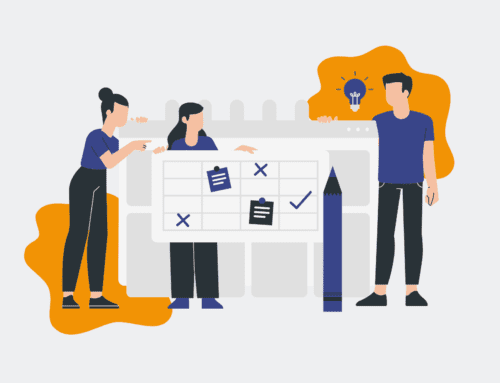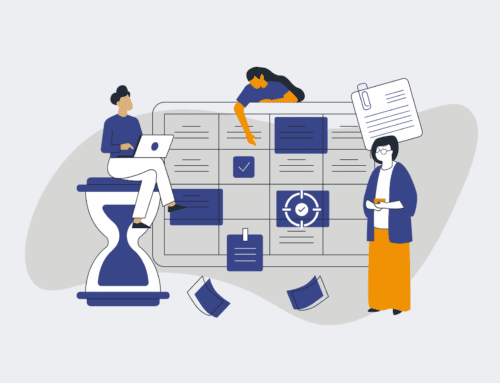Data Privacy and AI in HR: Navigating GDPR and CCPA Compliance
The integration of Artificial Intelligence into Human Resources offers immense efficiency, transforming processes from talent acquisition to employee development. However, this transformative power comes with significant responsibility for safeguarding sensitive personal data. For organizations operating across diverse jurisdictions, balancing AI innovation with robust data privacy compliance—particularly with regulations like GDPR and CCPA—is not merely a legal obligation, but a cornerstone of ethical business practice and long-term trust.
Navigating the Evolving Regulatory Landscape
The digital age has ushered in a mosaic of privacy regulations designed to empower individuals with control over their personal data. For HR departments leveraging AI, developing a proactive approach to this complex legal framework is paramount.
GDPR’s Impact on HR Data Processing
The General Data Protection Regulation (GDPR), enacted by the European Union, stands as a global benchmark for data protection. In the HR context, GDPR demands strict adherence to principles such as lawfulness, fairness, transparency, and data minimization. This means any AI system processing personal data—from applicant screening to performance management—must have a clear legal basis, whether it’s consent, legitimate interest, or contractual necessity. EU individuals retain extensive rights, including the right to access, rectification, erasure, and objection to automated decision-making. HR systems powered by AI must be architected to respect and facilitate these rights, ensuring individuals can exercise control over their information.
CCPA Compliance for Employee Data
Across the Atlantic, the California Consumer Privacy Act (CCPA), and its successor CPRA, provide similar protections for California residents. While initially focused on consumer data, CCPA significantly impacts HR through its provisions for employee and applicant data. Businesses must provide clear disclosures about data collection practices and grant individuals the right to know what personal information is collected, and to opt-out of the sale or sharing of their data. For AI-driven HR processes, this translates to heightened transparency requirements regarding how AI tools utilize employee data for profiling, hiring, or performance evaluation. Understanding these nuances helps organizations avoid costly penalties and reputational damage, especially as other U.S. states introduce similar legislation.
Beyond Major Regulations: A Global Privacy Trend
It’s crucial to recognize that GDPR and CCPA are not isolated incidents but part of a broader global movement towards stricter data privacy. From Brazil’s LGPD to Canada’s PIPEDA, and emerging frameworks in Asia and other U.S. states, organizations are facing an increasingly fragmented yet interconnected regulatory environment. This necessitates an adaptable approach to data governance in AI-powered HR, ensuring systems are designed with privacy by design and by default principles, scalable enough to accommodate future legislative shifts.
The AI-HR Dilemma: Maximizing Innovation, Minimizing Risk
The allure of AI in HR is undeniable, promising breakthroughs in efficiency and employee experience. Yet, the very mechanisms that make AI powerful can also pose significant privacy risks if not meticulously managed.
Benefits of AI in HR Transformation
AI tools can revolutionize HR operations: automating resume screening, personalizing learning paths, predicting attrition, and enhancing talent acquisition with sophisticated matching algorithms. These advancements promise to free HR professionals from tedious, low-value work, allowing them to focus on strategic initiatives. The potential for improved candidate experience, reduced time-to-hire, and more objective hiring decisions is immense, driving significant ROI for forward-thinking organizations.
Ethical Pitfalls and Data Privacy Risks
Despite the benefits, AI in HR presents inherent challenges. Algorithms, if not carefully designed and monitored, can perpetuate and even amplify existing biases embedded in historical data, leading to discriminatory outcomes. The collection of vast datasets, including sensitive personal information, raises concerns about data security breaches, unauthorized access, and potential misuse. Furthermore, the ‘black box’ nature of some advanced AI models can make it difficult to explain decisions, posing a direct conflict with transparency requirements, particularly regarding automated decision-making. The ethical imperative extends beyond mere compliance; it encompasses fairness, accountability, and respecting human dignity in the workplace.
Key Strategies for Compliant AI Implementation in HR
Navigating the complex intersection of AI and data privacy requires a strategic, multifaceted approach. It’s about building a framework where innovation thrives within the boundaries of ethical and legal compliance.
Implement Data Minimization & Purpose Limitation
A foundational principle for compliant AI is data minimization. Only collect the personal data that is strictly necessary for a specified, explicit, and legitimate purpose. For HR, this means rigorously assessing whether every piece of data fed into an AI system genuinely contributes to the intended outcome. Implement robust data retention policies, automatically deleting data no longer required, to reduce risk exposure.
Ensure Transparency & Obtain Informed Consent
Openness is paramount. Organizations must be transparent with employees and candidates about how their data is collected, processed, and used by AI systems. This includes clearly explaining the logic involved in automated decision-making and any potential impacts. Where consent is the legal basis for processing, it must be freely given, specific, informed, and unambiguous. This means obtaining explicit consent before using AI tools for certain HR functions, particularly those involving sensitive personal data or high-impact decisions.
Strengthen Data Security & Governance
Protecting sensitive HR data from breaches is non-negotiable. This requires implementing state-of-the-art technical and organizational security measures, including encryption, access controls, pseudonymization, and regular security audits. Beyond technology, a strong data governance framework is essential, establishing clear roles, responsibilities, and policies for data handling throughout its lifecycle. This includes incident response plans to address potential data breaches swiftly and effectively, minimizing harm and ensuring regulatory notification compliance.
Conduct Regular Audits & Impact Assessments
Proactive compliance involves continuous monitoring. Conducting Data Protection Impact Assessments (DPIAs) for new AI implementations in HR can identify and mitigate privacy risks before they materialize. Regular audits of AI systems are crucial to verify their ongoing compliance, detect unintended biases, and ensure their algorithms are fair, accurate, and non-discriminatory. Organizations should invest in tools and expertise to monitor AI outputs for bias, ensuring ethical outcomes and upholding fairness in employment practices.
Perform Thorough Vendor Due Diligence
Many HR AI solutions are delivered by third-party vendors. It is imperative to conduct thorough due diligence on these providers, evaluating their security practices, privacy policies, and compliance with relevant regulations. Contractual agreements must include clear data processing addendums (DPAs) that specify data ownership, processing instructions, security obligations, and liability in case of non-compliance. A vendor’s privacy posture directly reflects on your organization, making this step a critical element of your overall compliance strategy.
How 4Spot Consulting Supports AI-HR Compliance
At 4Spot Consulting, we understand that navigating the complexities of AI in HR and data privacy regulations like GDPR and CCPA can be daunting. Our expertise lies in building intelligent automation and AI solutions that are not only efficient but also compliant by design. Through our OpsMap™ strategic audit, we help organizations identify their specific data processing needs, pinpoint areas of compliance risk, and architect systems that streamline HR operations while upholding the highest standards of data protection. We integrate tools like Make.com to orchestrate data flows securely and transparently, ensuring your AI initiatives drive value without compromising privacy or incurring regulatory penalties. Our focus is on practical, ROI-driven solutions that empower your HR department to leverage AI confidently and compliantly.
The future of HR is inextricably linked with AI, but its success hinges on a steadfast commitment to data privacy. By embracing a proactive, strategic approach to compliance with regulations like GDPR and CCPA, organizations can unlock the full potential of AI, foster trust, and build a more ethical, efficient, and resilient workforce.
If you would like to read more, we recommend this article: Mastering AI in HR: Your 7-Step Guide to Strategic Transformation







